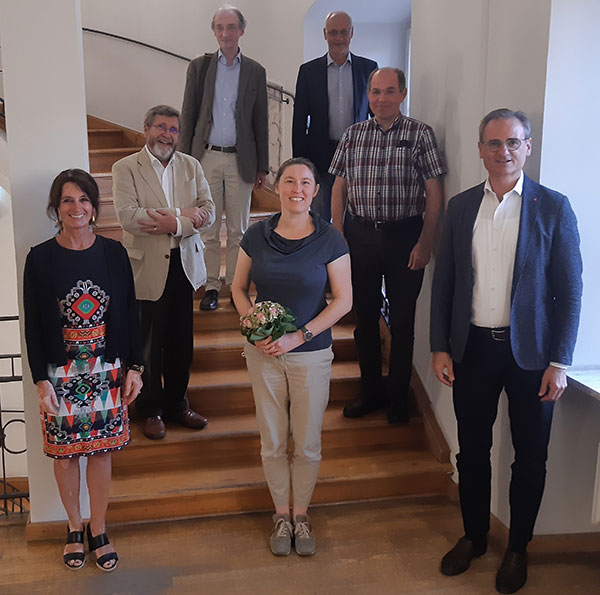
Freunde und Förderer der Tage Alter Musik Regensburg e.V.
Unser Verein unterstützt die Tage Alter Musik Regensburg durch finanzielle Zuwendungen, Sachzuwendungen und organisatorische Mithilfe. Gegründet im Juli 2021 können wir im Juli 2025 bereits über 400 Vereinsmitglieder melden. Gemeinsam werden wir die international renommierten Tage Alter Musik Regensburg unterstützen und fördern.
FOLGENDE VORZÜGE KÖNNEN SIE ALS VEREINSMITGLIED GENIESSEN:
- exklusive Vorab-Bestellung von Tickets
- Email-Newsletter
- Ihren Beitrag und Ihre Spende können Sie steuerlich geltend machen.
Rückblick auf ein exklusives Konzert nur für Vereinsmitglieder
Vereinsbeitrag
Einzelmitgliedschaft ab 50.- € Jahresbeitrag
Doppelmitgliedschaft ab 75.- € Jahresbeitrag
Junge Förderer (U30) ab 20.- € Jahresbeitrag
Vereinssatzung
Kontakt zum Verein
TAMFreunde@gmx.de

Vorstand und Beirat des neu gegründeten Vereins „Freunde und Förderer der Tage Alter Musik Regensburg“
1. Reihe v.l.n.r.: Kerstin Radler, Prof. Dr. Katelijne Schiltz, Wolfgang Dersch
2. Reihe v.l.n.r.: Prof. i. R. Dr. Hiley, Franz Maier
3. Reihe v.l.n.r.: Dr. Raymond Dittrich, Roland Büchner
nicht auf dem Bild: Dr. Thorsten Preuß
Foto: © Privat
Am 7. Juli 2021 fand im Konferenzraum des Thon-Dittmer-Palais die Gründungsversammlung des Vereins Freunde und Förderer der Tage Alter Musik Regensburg e. V. statt.
Der Verein macht es sich zur Aufgabe, das alljährlich an Pfingsten stattfindende internationale Alte-Musik-Festival finanziell und ideell zu unterstützen. Gerade in Pandemiezeiten und im Moment gar nicht abzusehender großer finanzieller Belastungen öffentlicher Haushalte ist ein Förderverein für die Unterstützung dieses renommierten Festivals von existenzieller Bedeutung.
Die Gründer der TAGE ALTER MUSIK, Ludwig Hartmann und Stephan Schmid und der Geschäftsführer Paul Holzgartner freuen sich sehr über diese Initiative und wünschen dem Verein alles Gute und viel Erfolg.
Erste Vorsitzende wurde Prof. Dr. Katelijne Schiltz, Inhaberin des Lehrstuhls für Musikwissenschaft an der Universität Regensburg,
Stellvertretender Vorsitzender wurde Wolfgang Dersch, Kulturreferent der Stadt Regensburg,
Schatzmeister wurde Franz Maier, Finanz- und Versicherungsmakler.
Die Vorstandschaft wird durch einen 5-köpfigen Beirat unterstützt, dem folgende Personen angehören:
Kerstin Radler, FW, Stadt-u Bezirksrätin, Kulturreferentin des Bezirks Oberpfalz
Roland Büchner, Domkapellmeister emeritus
Dr. Raymond Dittrich, Bischöfliche Zentralbibliothek Regensburg, Proskesche Musikabteilung
Prof. i. R. Dr. David Hiley, Universität Regensburg
Dr. Thorsten Preuß, Redakteur Bayerischer Rundfunk
Der gesamte Vorstand und der Beirat wurden am 17. Mai 2024 bei Neuwahlen im Rahmen der Mitgliederversammlung auf weitere drei Jahre bestätigt.
